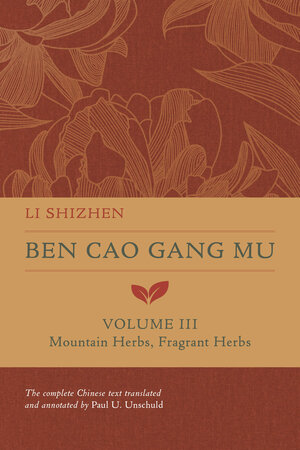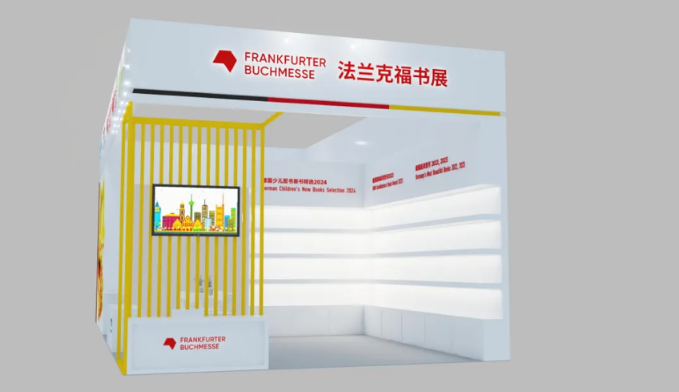The Pharmacy of Ben Cao Gang Mu: Art Exhibition on Paul U. Unschuld's Translation

Opening:2024.5.23
Duration:2024.5.23-27
Address:Hall 10, Shenzhen International Convention and Exhibition Centre, Frankfurt Book Fair Pavilion.
No. 1 Zhancheng Road, Bao'an District, Shenzhen.
Academic Hosting:Dr.Jasmin Gong
Curator:Lam kongchuen
Organisers:InterCulture, DERUI
Co-organiser:Zhu Shi Nutritional Technology
Supporter:The 20th China (Shenzhen) International Cultural Industries Fair
The 20th Shenzhen Cultural Fair will be held at Shenzhen Bao'an International Convention and Exhibition Center from May 23 to 27, 2024. InterCulture and DERUI are looking forward to your visit as we join forces to present three exhibitions and projects in Hall 10: “The Beauty of Books: Art Exhibition on the best books of the Frankfurt Book Fair 2022-2024”, The Pharmacy of Ben Cao Gang Mu: Art Exhibition on Paul U. Unschuld's Translation, and the Interactive Art Project of the German University of Media and Design.
|Special Thanks to|
Frankfurt Buchmesse;
Institut für Theorie, Geschichte, Ethik Chinesischer Lebenswissenschaften, Charité;
School of Chinese Medicine,Hong Kong Baptist University;
Gesellschaft für Deutsch-Chinesische Verständigung (GDCV)
|Opening|
2024.5.23
|Duration|
2024.5.23-27
5.23 12:00-18:30
5.24 09:30-18:30
5.25 09:30-18:30
5.26 09:30-18:30
5.27 09:30-18:00
Foreword/
The fact that Ben Cao Gang Mu (the Compendium of Materia Medica) is on UNESCO's Memory of the World Register does not mean that its contents are seen and understood by the world.
—— Prof. Paul U. Unschuld
renowned German sinologist and
Professor of history of medicine
Ben Cao Gang Mu is not only an ancient pharmacopoeia, but also a living museum. Prof. Paul U. Unschuld, a leading German medical scientist, has spent more than 20 years translating Ben Cao Gang Mu into English. Last year, the last volume of the translation was published. This exhibition presents all 10 volumes of the translation and three additional dictionaries, as well as copies of some of the more than 1,000 ancient Chinese herbal remedies in Professor Unschuld's collection.



Ten volumes of Ben Cao Gang Mu with three additional dictionaries
translated by Paul U. Unschuld
Translation is a profound reading. We hope to "transform" Professor Unschuld's translations into contemporary artworks through artistic concepts, transforming the exhibition site into another translation site, where the relationship between external and internal translations will strengthen the interaction with the audience. This practice attempts to create a "gaze" effect in the exhibition space, guiding the audience to complete their viewing through "deep reading", which not only breaks the inertia of viewing, but also opens up new paths for combining medical research and art practice.



《本草纲目》英文版10卷与3卷附加使用的词典
翻译是一种深刻的阅读。我们希望通过艺术观念将文树德教授的译著“转译”成当代艺术作品,将展览现场转化成另一个翻译现场, 外译和内译的关系将加强与现场观众的互动性。这个实践试图在展示空间制造“凝视”的效应,引导观众通过“深入的阅读”来完成观看之道,这不仅打破观看的惯性,也另辟了医学研究和艺术实践相结合的新路径。


photograph of the scene
This exhibition uses Professor Unschuld's translation of Ben Cao Gang Mu as a medium, where the medical translation and the installation reach an intertextual relationship, presenting a three-dimensional interactive textual model. The processing of the information in translation triggers multiple references, including what can and cannot be done in translation and medicine, the problem of symmetry of information and the problem of interiority that is prevalent in economic and social life, etc. We reflect on our lives and the reality we are in by looking at and identifying the landscape in the axis of translation. What the eye sees, the brain does not necessarily see. Some of the works use the methods of covering, revealing and interacting with information during the installation process, and this way of exploring whether medical translation can or cannot be done through artistic strategies can arouse the viewer's attention and reflection, and the viewer becomes the key to sustained attention and reflection.

Professor Unschuld, who spent 28 years translating the Yellow Emperor's Classic of Internal Medicine and another 22 years translating Ben Cao Gang Mu, understands and translates Chinese medicine with a TCM (Traditional Chinese Medicine) mindset. He said, "My Chinese colleague, Professor Zheng Jinsheng, likened Ben Cao Gang Mu to a museum in which one can find everything that has been used as medicine in the past."
Exhibited works/

The Pharmacy of Ben Cao Gang Mu
Installation art by Paul U. Unschuld and Lam(co-artist)
English version of Ben Cao Gang Mu, Chinese medicine cupboard, Chinese medicine, medicine altar, Chinese medicine wrapper
220cmx120cmx60cm/set, 2024
Professor Unschuld, a leading German medical scientist, translates Chinese medicine with the thinking of a TCM practitioner, and creates the English version of Ben Cao Gang Mu as a pharmacy. The 10 volumes of the English version of Ben Cao Gang Mu with 3 additional dictionaries are not displayed on the shelves, but in the drawers of the Chinese medicine 100-eye cupboard. The powder of some medicines is made from the recycled old books of Ben Cao Gang Mu; some manuscripts of Ben Cao Gang Mu come from the paper made from churned up medicines, and the line between them is blurred as to whether the medicine is a book or the book is a medicine.
Each drawer has a collage of book cut-outs of dozens of drug names, and the entire 100-eye cupboard constitutes a general catalogue of Ben Cao Gang Mu, translated into an installation version of Ben Cao Gang Mu. The presentation shows that Ben Cao Gang Mu is also a medicine or a prescription for the world. At the same time, the material is also wrapped and scattered in herbal paper in containers related to herbal medicine, such as medicine woks and medicine jars.

The Pharmacy of Ben Cao Gang Mu (Part)
10 volumes of the English version with 3 additional
dictionaries


Restoring the ancient "you"
in Chinese medical prescription
Installation art by Paul U. Unschuld and Lam(co-artist)
Reproduction of Chinese medical prescription
210mm x 297mm/piece, 2024
Professor Unschuld's collection of Chinese medical prescriptions is exhibited as textual art. Next to each prescription is a medicinal packet prepared in accordance with the prescription and a drop box for the patient's physical problems, which allows the viewer to put his or her own physical problems into the corresponding drop box, in order to search for his or her ancient self, and to restore the ancient "you" in the Chinese prescriptions. The three form a reciprocal relationship between text and object, creating a broader shift in the original concepts of Chinese medicine, time and life, and an intertextual concept between patient, medical practitioner and translator.
Translation of a medicine, installation
The cover of a Prof. Unschuld’s translation of Ben Cao Gang Mu has herbs growing out of it, is it by natural growth, or a translation of the book?
The appearance of a Prof. Unschuld’s English translation of Ben Cao Gang Mu within a small wall created by the 19 original Chinese versions of the book is a metaphor for Professor Unschuld’s 's 22 years of translation work.
Scholar Introduction/

Prof. Paul U. Unschuld
German
Prof. Paul U. Unschuld is a renowned German sinologist and expert in the history of medicine. Born in 1943, he graduated from the University of Munich and studied at Hopkins University in the United States, where he served as Director of the Institute of Chinese Life Sciences at the Charité Medical School in Berlin, Vice-President of the Sino-German Society for Medical Sciences, and President of the International Society for the History of Science, Technology, and Medicine in East Asia (ISSTM).
Since the late 1960s, Professor Unschuld has been associated with Chinese medicine, and his research focuses on the comparative history of Chinese and European medicine and related life sciences. He has successively written and published Huangdi Neijing Suwen - Nature, Knowledge and Imagery in Ancient Chinese Medicine Literature, The History of Chinese Materia Medica, The History of Ethics in Chinese Medicine, The History of Chinese Medicine, The History of Medical Thought in China, The History of Materia Medica, The History of Chinese Pharmacy, “What is Medicine? -Therapeutic Methods in East and West" and a series of other works on t the history of Chinese medicine. He has translated dozens of classical medical works of Chinese medicine into English or German, such as the Classic of Difficulties and the Yellow Emperor's Classic of Internal Medicine.


